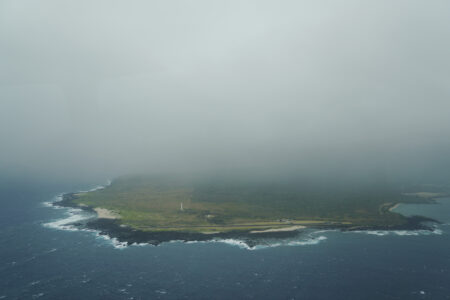State Supreme Court knocks land board
The state Supreme Court has affirmed that the Sierra Club of Hawaii should have had an opportunity for an evidentiary hearing before the state land board approved a water distribution plan for a major Maui landowner.
“They recognized we had an interest requiring due process, but their position was a public meeting was sufficient,” said David Kimo Frankel, an attorney for the Sierra Club.
The court’s decision Friday appears to increase chances that the state Board of Land and Natural Resources will hold a contested case hearing about the proposed withdrawal of water from East Maui.
In 2020, the land board renewed Alexander & Baldwin Inc.’s revocable permit to withdraw water from East Maui streams for 2021, while denying the Sierra Club of Hawaiʻi’s request for an evidentiary hearing, or contested case, to more thoroughly examine the environmental and cultural impacts of its decision.
“We hold that constitutional due process required that the Sierra Club’s contested case hearing should have been held prior to the BLNR’s renewal of the RP for 2021,” the Supreme Court ruled.
Alexander & Baldwin sold its Maui farmland to Mahi Pono in December 2018 and completed its transfer of East Maui Irrigation system in June 2025.
Mahi Pono, which owns about 41,000 acres of farmland in Central Maui, was unavailable for comment.
Mahi Pono’s East Maui Irrigation is the major carrier of water for domestic use in Upcounty Maui and for many ranch and farmlands, including taro farms in East Maui.
The state land board said the Department of Land and Natural Resources is reviewing the court’s opinion to assess its implications.
“We remain steadfast in our duty to protect, conserve and manage our state’s precious natural, cultural and historic resources for Hawaii’s current and future generations,” the land board said.
“We thank the Hawaii Supreme Court for bringing this case to a conclusion. It is now our obligation to comply with the court’s decision.”
Frankel said the decision goes beyond the land board’s responsibility to consider the impacts of dried out streambeds, disrupted cultural practices, and rampant water waste — all of which are critical issues.
“This is also about whether a government agency can simply deprive you of your constitutional rights – without any opportunity to present and examine facts, cross examine witnesses or demonstrate the extent of the harm that you may suffer from its decisions,” he said.





